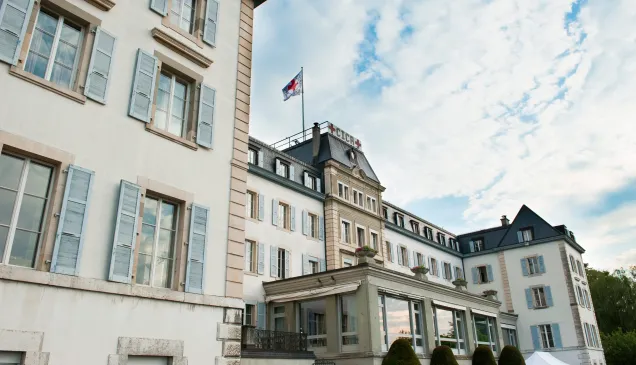Ukraine: As Winter Approaches, Communities Prepare
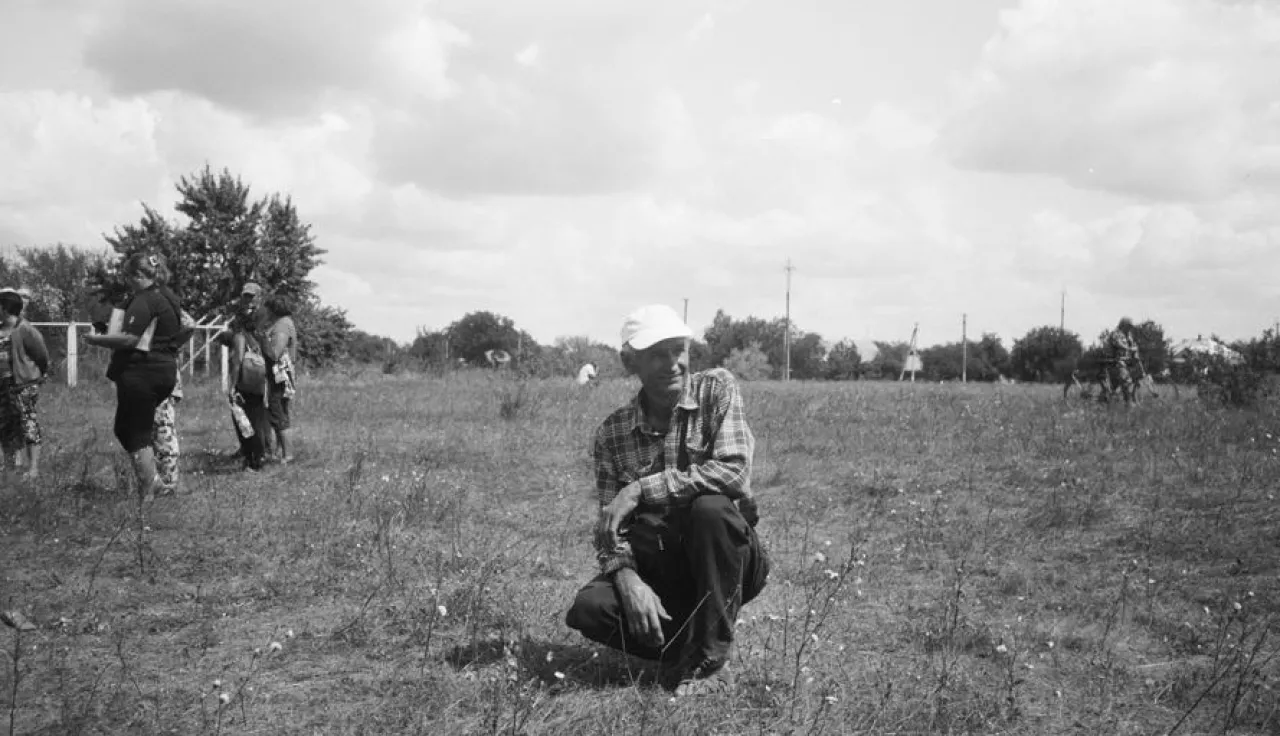
“We returned here in the autumn of 2023. We came back because home is home.”
For Alina Sydorenko, home is the small village of Pidlyman in Kharkiv region. Nowadays, it does not differ much from other settlements near Izium: fully intact houses are rare; residents' fences resemble a sieve of shots and shrapnel; mine warning signs are installed along the entire road to the village; empty streets are primarily silent, whereas before, they used to be filled with daily conversations about everyday life and children's laughter.
Alina's ‘home’ used to be an actual resort centre, with the Oskil River on one side and vast forests of breathtaking beauty on the other. But now it is a restricted area: even the youngest child knows that there is unexploded ordnance in the forest, left over from intense hostilities. Previously, every summer, tourist centres near the river would host visitors from different regions. There used to be a spacious school here, which is no longer used for its intended purpose: education is now online. More than 1,670 people lived here until 2022. Today, little more than 600 villagers are saving everything that has survived the shelling and trying to rebuild what can still be restored.
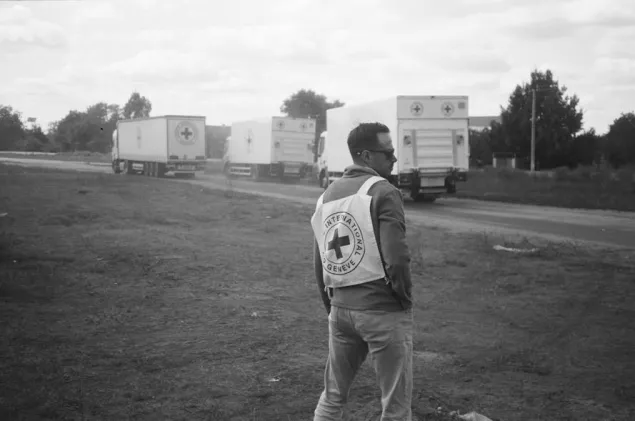
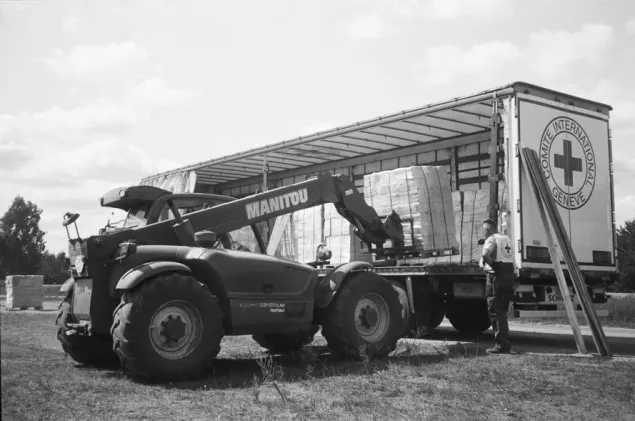
Like dozens of others, Alina is waiting in Pidlyman's largest square for the International Committee of the Red Cross (ICRC) convoy. She is waiting because her family is already thinking about how to get through the winter. When they reach their destination, the five trucks begin to unload: residents receive briquettes to heat their homes during the cold season.
Because of the war, our income has decreased, it is tough to find a job now, and many people have simply lost it. We don't want to leave again. Yes, it's difficult; the shelling has intensified, and sometimes we don't know where to hide. We left during the occupation. It was complicated to leave our home for more than a year. Even now, after we have returned, my husband and I brought our children out of here. They take a little breather and rest psychologically, but then they ask to return. They still want to be at home.
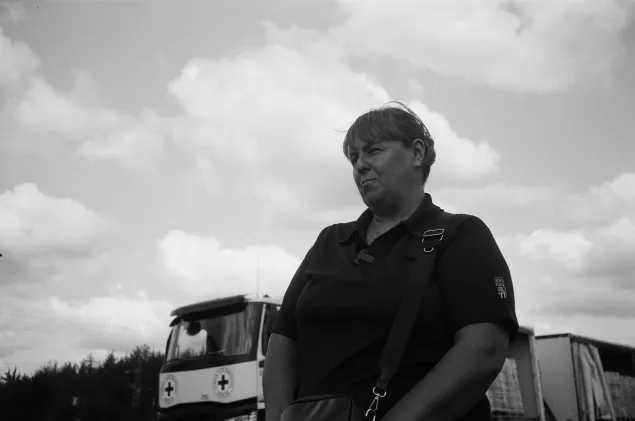
A truck loaded with Alina's briquettes is coming to her house. For the woman, this is a small assurance that her family will stay warm during the cold season and hope that they will be able to survive another winter.
For most older people here, and not only here, winter is a real challenge because their pensions are barely enough to support themselves. For the past two years, gas heating has been a privilege for them, and even buying wood is not so easy, with prices almost doubling.
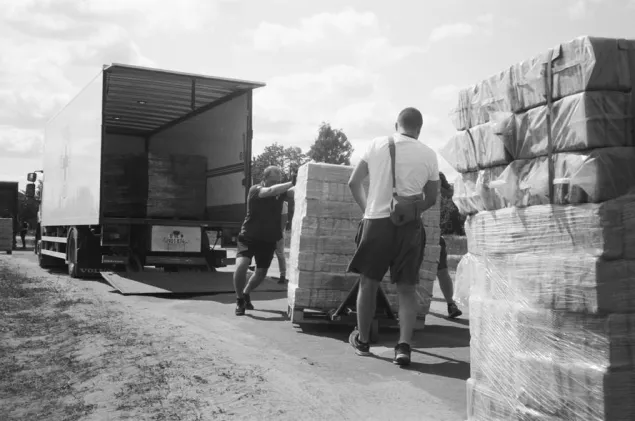
Last winter, I heated my house with wood and occasionally with gas. It turns out that my entire pension was spent only on heating. Now, we are in a situation where we cannot go to the forest to get firewood because of the hostilities. It's quite dangerous because of the shelling and mining.
Hryhorii is originally from Donetsk but has been living in Pidlyman since 2016 and calls it home. He runs a small household and grows vegetables for himself on a plot of land. It's impossible to do otherwise here: you have to have something to wake up for in the morning and keep you busy during the day. His children have moved abroad, so Hryhorii lives alone. Nevertheless, he does not complain about anything; he is just happy with what he has: since the conflict escalated, his values have changed significantly.
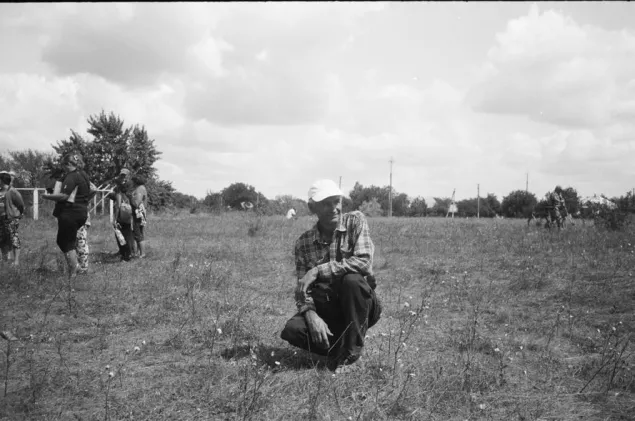
"I saw two houses and a shop on this square being shot at by a tank. I don't know why they had to destroy the houses of civilians... But it's not for me to judge. Now I have to think about how to survive the winter on my pension."
There are fewer and fewer people in the square. The locals are working together to deliver the briquettes to their homes. Petro Holyk is still waiting for his truck. He is 83 years old, was born in Pidlyman, and has never left his home. It is where his best and most painful memories are kept. Here his wife is buried, and here he will remain, despite everything.
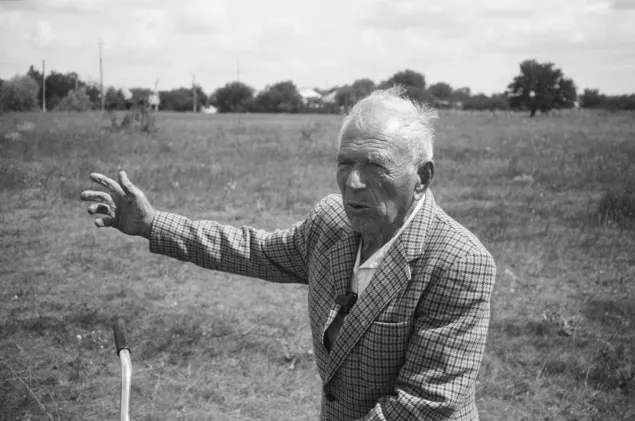
There used to be coal warehouses and suchlike, and you could buy coal to heat your house. But now we don't have any of that. And we need to heat somehow; winter is coming soon.
In his way, he calls fuel briquettes the heating allowance. He admits that he doesn't need much, just enough to keep the house at least a little warm in winter. But he is glad that he no longer has to worry about frost. The only wish he has left is for the conflict to end.
“War is war. When I think about how many people have already died…” Petro says. “We come under shelling almost every day. In Borova [a neighbouring village], the centre is completely gone. The centre of our village is also destroyed. So, it turns out: I grew up during the previous war (WWII), and will have to die during this one.”
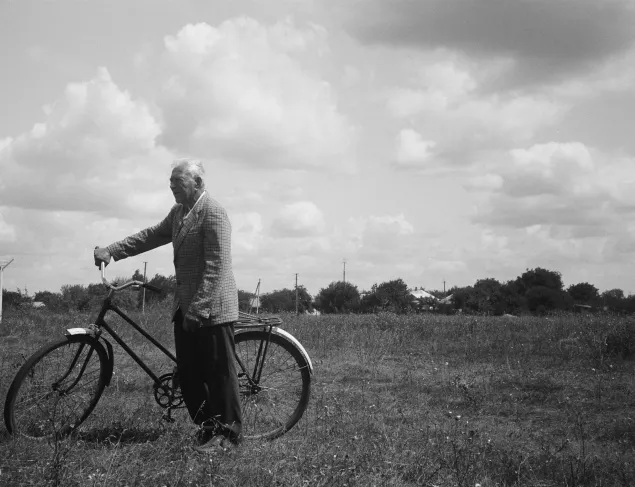
With a bitter smile, Petro says goodbye to us and cycles off to catch up with his heating allowance. Eventually, the square becomes empty. Twenty-eight families received briquettes during the day in anticipation of the cold season.
In a week, almost 160 families in this village will be guaranteed heat for this winter.
The village of Pidlyman is just one of the locations on our assistance map along the frontline close to Kharkiv. But in each settlement there are hundreds of people who are trying their best to cope with the consequences of the conflict. They still have the strength and courage to smile, even in the darkest times. They stay or return home.
Because home is home.
Read more about the ICRC's work in Ukraine
- ICRC Ukraine annual winterization project: Bringing warmth to settlements on either side of the Donbas conflict
- Russia-Ukraine: Overview of the ICRC’s response two years after the escalation of the armed conflict
- Russia-Ukraine international armed conflict: The Red Cross and Red Crescent response from February 2022 to June 2023
- Russia-Ukraine international armed conflict: Your questions answered about ICRC’s work



